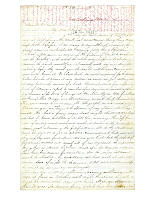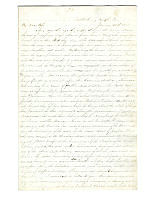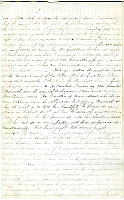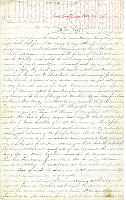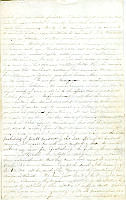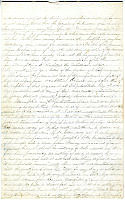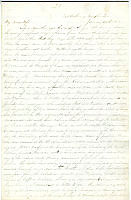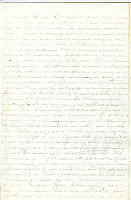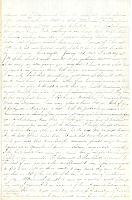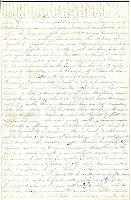Humphrey Hood to Matilda Hood, Humphrey Hood Papers (Part 2 of 4)
This is a letter from First Assistant Surgeon Humphrey Hood at Fort Pickering, Memphis, to his wife, Matilda Hood, at Litchfield, Illinois, dated January 6, 1863. At the time Hood served in the U.S. Army, a member of the 117th Illinois Infantry Regiment. He later became Senior Surgeon of the Third U.S. Colored Heavy Artillery and Surgeon-in-Chief on the staff of General John E. Smith, District of the West. The letter highlights Hood's feelings about the Emancipation Proclamation. Declaring himself neutral on the subject of slavery and war policy, Hood was generally supportive of the measure. (See 1118452 for a full pdf of the letter.)
